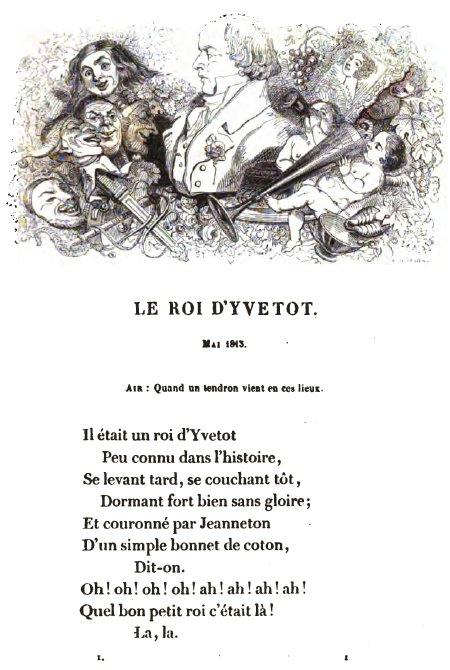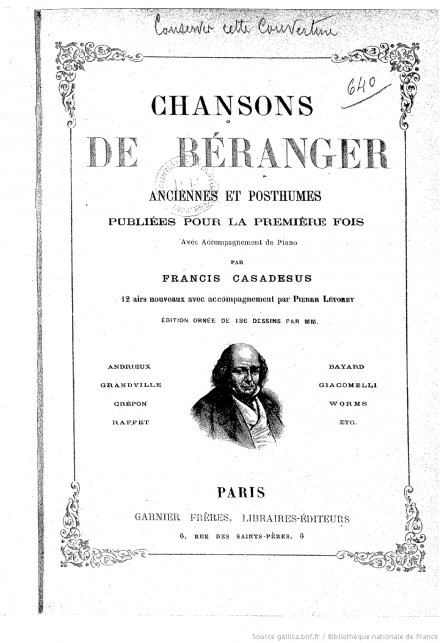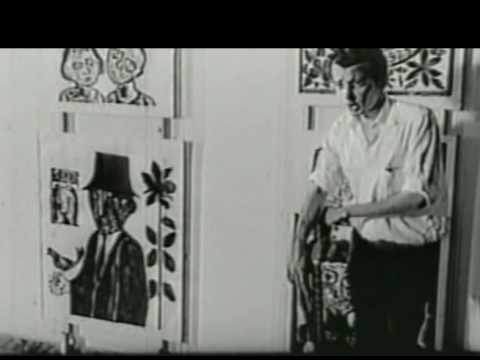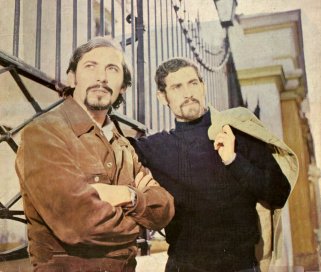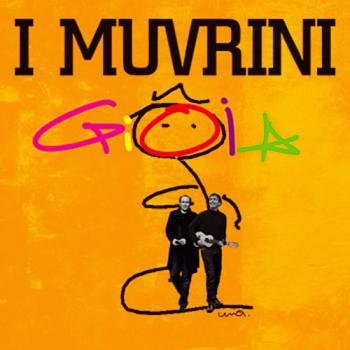Poor' Italia
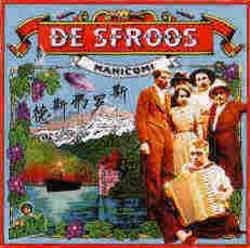
Da "Manicomi" - 1995
E i sann tütt luur, e i fann tütt luur,
(continuer)
(continuer)
envoyé par Gian Piero Testa 17/3/2010 - 23:51
Parcours:
Ah ! Italie esclave, auberge de douleur
Jambes minces

Jambes minces
Jambes minces – Marco Valdo M.I. – 2010
Cycle du Cahier ligné – 98
Jambes minces est la nonante-huitième chanson du Cycle du Cahier ligné, constitué d'éléments tirés du Quaderno a Cancelli de Carlo Levi.
Jambes minces, en voilà un drôle de titre, dit l'âne Lucien en esquissant une petite valse. Moi aussi, j'ai les jambes minces et même, si tu regardes le reste de mon corps, comme celui de tous les ânes, sans compter les mulets, les bardots, les chevaux, les girafes, les onagres, les zèbres, les impalas, les biches, les cerfs, les élans... et même, les veaux, les vaches, les bœufs, les moutons, les chèvres... Bref, les ongulés et autres espèces quadrupèdes du même gabarit, excepté les hippopotames, les rhinocéros, les éléphants, les mammouths... Tous ont des jambes minces et même fort minces par rapport à leur corps... Et on n'en fait pas toute une histoire; il n'y a pas... (continuer)
Jambes minces – Marco Valdo M.I. – 2010
Cycle du Cahier ligné – 98
Jambes minces est la nonante-huitième chanson du Cycle du Cahier ligné, constitué d'éléments tirés du Quaderno a Cancelli de Carlo Levi.
Jambes minces, en voilà un drôle de titre, dit l'âne Lucien en esquissant une petite valse. Moi aussi, j'ai les jambes minces et même, si tu regardes le reste de mon corps, comme celui de tous les ânes, sans compter les mulets, les bardots, les chevaux, les girafes, les onagres, les zèbres, les impalas, les biches, les cerfs, les élans... et même, les veaux, les vaches, les bœufs, les moutons, les chèvres... Bref, les ongulés et autres espèces quadrupèdes du même gabarit, excepté les hippopotames, les rhinocéros, les éléphants, les mammouths... Tous ont des jambes minces et même fort minces par rapport à leur corps... Et on n'en fait pas toute une histoire; il n'y a pas... (continuer)
Dans un jardin toujours en deuil,
(continuer)
(continuer)
envoyé par Marco Valdo M.I. 17/3/2010 - 17:26
Βουνά σας χαιρετώ

(Direttamente dal testo greco)
17 marzo 2010
17 marzo 2010
ADDIO, ADDIO MONTI
(continuer)
(continuer)
17/3/2010 - 16:39
Αυτοί που θά 'ρθουν μια βραδιά

(Direttamente dal testo greco)
17 marzo 2010
17 marzo 2010
ARRIVERANNO UNA SERA
(continuer)
(continuer)
17/3/2010 - 16:30
Ήρθαν οι άνθρωποι με τα μαύρα

(Direttamente dal testo greco)
17 marzo 2010
17 marzo 2010
VENNERO UOMINI IN NERO
(continuer)
(continuer)
17/3/2010 - 16:22
In fila per tre

Chanson italienne – In Fila per tre – Edoardo Bennato - 1974
Vois-tu, Lucien l'âne mon ami, l'humanité a inventé une des plus grandes choses qui soit : la patrie, qui pour exister et être complète a besoin d'une école, d'une armée et d'une institution fondement de tout cela : la famille; accessoirement, d'une église. Ceci a été très bien résumé dans une devise – car il y faut aussi une devise : « Travail, Famille, Patrie ». Et comme je te disais, la Famille est centrale. Le tout est enrobé de la sauce « discipline » et la discipline, qui est l'amidon de la hiérarchie et le ciment des armées, fonctionne en rangs. Tel est le sens de cette remarquable chanson.
Voilà qui m'a l'air excellent, dit Lucien l'âne en raidissant sa queue à la verticale comme pour saluer on ne sait quel général qui passerait par là et qui, en tant que bon général, n'oublierait pas de crier : « Garde à vous ! ». Voilà... (continuer)
Vois-tu, Lucien l'âne mon ami, l'humanité a inventé une des plus grandes choses qui soit : la patrie, qui pour exister et être complète a besoin d'une école, d'une armée et d'une institution fondement de tout cela : la famille; accessoirement, d'une église. Ceci a été très bien résumé dans une devise – car il y faut aussi une devise : « Travail, Famille, Patrie ». Et comme je te disais, la Famille est centrale. Le tout est enrobé de la sauce « discipline » et la discipline, qui est l'amidon de la hiérarchie et le ciment des armées, fonctionne en rangs. Tel est le sens de cette remarquable chanson.
Voilà qui m'a l'air excellent, dit Lucien l'âne en raidissant sa queue à la verticale comme pour saluer on ne sait quel général qui passerait par là et qui, en tant que bon général, n'oublierait pas de crier : « Garde à vous ! ». Voilà... (continuer)
EN RANGS PAR TROIS
(continuer)
(continuer)
envoyé par Marco Valdo M.I. 17/3/2010 - 15:53
Canción para mi América
Versione inglese di Barbara Dane da “Cancion Protesta: Protest Songs of Latin America”, Paredon Records, 1970.

GIVE YOUR HAND TO THE INDIAN
(continuer)
(continuer)
envoyé par Alessandro 17/3/2010 - 13:43
Los vietnamitas son pequeñitos (David y Goliat)
Traduzione inglese come da “Cancion Protesta: Protest Songs of Latin America”, edited by Barbara Dane, Paredon Records, 1970.
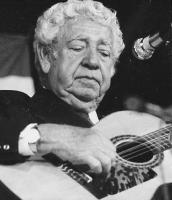
DAVID AND GOLIATH
(continuer)
(continuer)
envoyé par Alessandro 17/3/2010 - 13:24
The Kent State Massacre
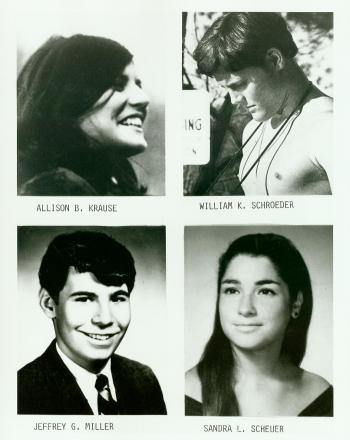
[1970]
Words by Jack Warshaw and Barbara Dane.
Melody from The Death of Harry Simms (Aunt Molly Jackson).
Album “I Hate the Capitalist System”,
Paredon Records, 1973.
“The capitalist system, since its earliest days when little children were employed in the mills and sweatshops, has destroyed its young. In recent times it has demonstrated that it will not tolerate the most modest challenge to its power by murdering students during peaceful demonstrations on campuses.
There is a direct line of continuity from the murders at Orangeburg of Sam Hammon, 18, Delano Middleton, 17, and Henry Smith, 18, to the murders at Jackson State in Mississippi of Phillip Gibbs, 19 and James Green, 17, to the murders at Kent State, Ohio.
The line continues to the needless victimization of hundreds of thousands of their generation who were sent away to fight and die or come home maimed in body or spirit,... (continuer)
Words by Jack Warshaw and Barbara Dane.
Melody from The Death of Harry Simms (Aunt Molly Jackson).
Album “I Hate the Capitalist System”,
Paredon Records, 1973.
“The capitalist system, since its earliest days when little children were employed in the mills and sweatshops, has destroyed its young. In recent times it has demonstrated that it will not tolerate the most modest challenge to its power by murdering students during peaceful demonstrations on campuses.
There is a direct line of continuity from the murders at Orangeburg of Sam Hammon, 18, Delano Middleton, 17, and Henry Smith, 18, to the murders at Jackson State in Mississippi of Phillip Gibbs, 19 and James Green, 17, to the murders at Kent State, Ohio.
The line continues to the needless victimization of hundreds of thousands of their generation who were sent away to fight and die or come home maimed in body or spirit,... (continuer)
Brothers, listen to my story,
(continuer)
(continuer)
envoyé par Alessandro 17/3/2010 - 13:04
Song Of The Coats
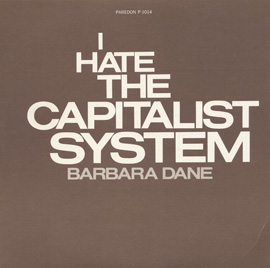
[1968]
Original music and words in vietnamese by Xuan Hong, Việt cộng fighter in southern Vietnam.
English words by Barbara Dane.
Dall’album “I Hate the Capitalist System”, Paredon Records, 1973.
“Written in the southern part of Vietnam in the early '60s, this song was printed in a little pocket songbook carried by the NLF fighters [ossia il Việt cộng] as one of their first gifts to people in the newly liberated villages. It celebrates the dedication of the people working in the little jungle workshops even under the constant threat of bombings and strafings to supply the needs of the fighters. I have had the privilege of singing it in Paris at the giant Tet celebration held in 1972 by the Vietnamese community there, in this English version, and while doing volunteer work with a group of Vietnamese women on a large farm in Cuba when I only knew how to sing the melody without words. Both... (continuer)
Original music and words in vietnamese by Xuan Hong, Việt cộng fighter in southern Vietnam.
English words by Barbara Dane.
Dall’album “I Hate the Capitalist System”, Paredon Records, 1973.
“Written in the southern part of Vietnam in the early '60s, this song was printed in a little pocket songbook carried by the NLF fighters [ossia il Việt cộng] as one of their first gifts to people in the newly liberated villages. It celebrates the dedication of the people working in the little jungle workshops even under the constant threat of bombings and strafings to supply the needs of the fighters. I have had the privilege of singing it in Paris at the giant Tet celebration held in 1972 by the Vietnamese community there, in this English version, and while doing volunteer work with a group of Vietnamese women on a large farm in Cuba when I only knew how to sing the melody without words. Both... (continuer)
Brothers brave the rain and sun,
(continuer)
(continuer)
envoyé par Alessandro 17/3/2010 - 11:54
Parcours:
Guerre au Vietnam: vue du Vietnam
Beatles: A Day In The Life

Semplicemente la più grande canzone di tutti i tempi.
L'oscillazione tra la vita, la morte e il sogno hanno qualcosa di inafferrabile e di infinito.
L'oscillazione tra la vita, la morte e il sogno hanno qualcosa di inafferrabile e di infinito.
Andrea 16/3/2010 - 22:22
Lonesome Jailhouse Blues

[193?]
Scritta da Olen Montgomery.
Dall’album “I Hate the Capitalist System”, Paredon Records, 1973.
25 marzo 1931, sulla linea ferroviaria tra Chattanooga e Memphis, Tennessee.
C’è un sacco di gente su quel treno, tantissimi giovani e meno giovani, bianchi e neri, senza un soldo in tasca, che si spostano come “hobos” alla ricerca di qualche lavoro stagionale, come nei campi di cotone a Chattanooga… Su uno dei vagoni scoppia una rissa tra neri e bianchi… i secondi hanno la peggio, saltano giù dal treno e raccontano l’accaduto ad un capo-stazione che avverte lo sceriffo… Intanto sul vagone sono rimasti nove giovani neri e due ragazze bianche… Quando lo sceriffo di Paint Rock, Alabama, li ferma, queste due, per paura di essere arrestate per vagabondaggio, raccontano di essere state sequestrate e ripetutamente stuprate dai ragazzi neri, tutti tra i 13 e i 19 anni.
Siamo nel profondo sud... (continuer)
Scritta da Olen Montgomery.
Dall’album “I Hate the Capitalist System”, Paredon Records, 1973.
25 marzo 1931, sulla linea ferroviaria tra Chattanooga e Memphis, Tennessee.
C’è un sacco di gente su quel treno, tantissimi giovani e meno giovani, bianchi e neri, senza un soldo in tasca, che si spostano come “hobos” alla ricerca di qualche lavoro stagionale, come nei campi di cotone a Chattanooga… Su uno dei vagoni scoppia una rissa tra neri e bianchi… i secondi hanno la peggio, saltano giù dal treno e raccontano l’accaduto ad un capo-stazione che avverte lo sceriffo… Intanto sul vagone sono rimasti nove giovani neri e due ragazze bianche… Quando lo sceriffo di Paint Rock, Alabama, li ferma, queste due, per paura di essere arrestate per vagabondaggio, raccontano di essere state sequestrate e ripetutamente stuprate dai ragazzi neri, tutti tra i 13 e i 19 anni.
Siamo nel profondo sud... (continuer)
All night long I sat in my cell and cried
(continuer)
(continuer)
envoyé par Alessandro 16/3/2010 - 15:08
Canzone della Libertà (Viva la libertà)

Segnalo la curiosissima cover in chiave "prog" realizzata nei primi anni '80 dal gruppo veneziano Wedding Heart:
per info
www.myspace.com/weddingheart
per info
www.myspace.com/weddingheart
Fabio 16/3/2010 - 14:10
I Hate the Capitalist System
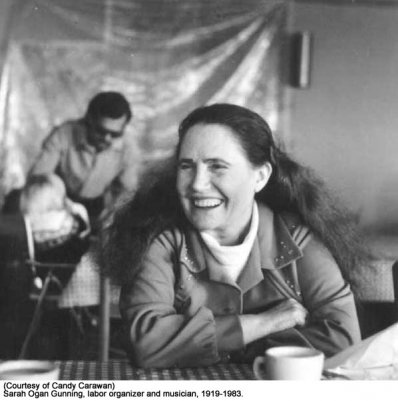
[193?]
Parole e musica di Sarah Ogan Gunning, sorellastra di Aunt Molly Jackson.
Dall’album “Girl of Constant Sorrow”, Folk Legacy Records, 1965.
Riproposta da Barbara Dane nell’album “I Hate the Capitalist System”, Paredon Records, 1973.
“Dedication. This recording is respectfully dedicated to the millions of hard-working people who really made America great, in the sure knowledge that one day they will gather up their strength, their courage and their wisdom, and they will come together to smash this decayed and dying system. They will use their inventiveness and industry to raise all our people to a decent living standard, and restore us to a place of respect among the fellowship of nations. They are the creators of history, and they will construct the socialist future.
Specifically, I want to dedicate these songs to my sister , Julia, who has recently entered that great school... (continuer)
Parole e musica di Sarah Ogan Gunning, sorellastra di Aunt Molly Jackson.
Dall’album “Girl of Constant Sorrow”, Folk Legacy Records, 1965.
Riproposta da Barbara Dane nell’album “I Hate the Capitalist System”, Paredon Records, 1973.
“Dedication. This recording is respectfully dedicated to the millions of hard-working people who really made America great, in the sure knowledge that one day they will gather up their strength, their courage and their wisdom, and they will come together to smash this decayed and dying system. They will use their inventiveness and industry to raise all our people to a decent living standard, and restore us to a place of respect among the fellowship of nations. They are the creators of history, and they will construct the socialist future.
Specifically, I want to dedicate these songs to my sister , Julia, who has recently entered that great school... (continuer)
I hate the capitalist system,
(continuer)
(continuer)
envoyé par Alessandro 16/3/2010 - 13:35
Bring Them Home (If You Love Your Uncle Sam)

New words [1969] by Barbara Dane and GIs from Ft. Hood, 11/9/69
Album “F.T.A.! Songs et the GI Resistance”, Paredon Records 1970.
Sung by Barbara Dane with active-duty GIs.
Recorded at Fort Hood, Texas, Fort Benning, Georgia and Fort Bragg, North Carolina.
Edited by Irwin Silber.
“F.T.A.”, acronimo per lo slogan pubblicitario dell’esercito “Fun, Travel and Adventure”, durante l’invasione del Vietnam fu utilizzato nell’ambito del movimento contro la guerra con il significato di “Free The Army” o di “Fuck The Army”…
Album “F.T.A.! Songs et the GI Resistance”, Paredon Records 1970.
Sung by Barbara Dane with active-duty GIs.
Recorded at Fort Hood, Texas, Fort Benning, Georgia and Fort Bragg, North Carolina.
Edited by Irwin Silber.
“F.T.A.”, acronimo per lo slogan pubblicitario dell’esercito “Fun, Travel and Adventure”, durante l’invasione del Vietnam fu utilizzato nell’ambito del movimento contro la guerra con il significato di “Free The Army” o di “Fuck The Army”…
BRING 'EM HOME
(continuer)
(continuer)
envoyé par Alessandro 16/3/2010 - 12:07
Last Drink With Don
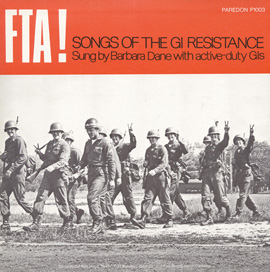
[1970]
Words by Fred Gardner
Music by Barbara Dane
Album “F.T.A.! Songs et the GI Resistance”, Paredon Records
Sung by Barbara Dane with active-duty GIs.
Recorded at Fort Hood, Texas, Fort Benning, Georgia and Fort Bragg, North Carolina.
Edited by Irwin Silber.
“Probably we should have recorded this song with some electric instruments and lots of echo and things, to make it easier to reach out for it from the electronic fantasy world of today‘s records. But I have a personal crusade going to bring back the sound of the human voice. Unretouched, spliced, or vibed up. It's one small battle I fight on the side, probably growing out of the fact that so many times when it's important to go ahead and sing something that will help to change, teach, heal, or move people there just isn't any mike or stage. So even when you're exhausted from marching and rallying, and speaking and travelling,... (continuer)
Words by Fred Gardner
Music by Barbara Dane
Album “F.T.A.! Songs et the GI Resistance”, Paredon Records
Sung by Barbara Dane with active-duty GIs.
Recorded at Fort Hood, Texas, Fort Benning, Georgia and Fort Bragg, North Carolina.
Edited by Irwin Silber.
“Probably we should have recorded this song with some electric instruments and lots of echo and things, to make it easier to reach out for it from the electronic fantasy world of today‘s records. But I have a personal crusade going to bring back the sound of the human voice. Unretouched, spliced, or vibed up. It's one small battle I fight on the side, probably growing out of the fact that so many times when it's important to go ahead and sing something that will help to change, teach, heal, or move people there just isn't any mike or stage. So even when you're exhausted from marching and rallying, and speaking and travelling,... (continuer)
Here's to the butterfly in the tropics of Tonkin,
(continuer)
(continuer)
envoyé par Alessandro 16/3/2010 - 11:48
Insubordination

[1970]
Album “F.T.A.! Songs et the GI Resistance”, Paredon Records
Sung by Barbara Dane with active-duty GIs.
Recorded at Fort Hood, Texas, Fort Benning, Georgia and Fort Bragg, North Carolina.
Edited by Irwin Silber.
“How do you spread your ideas when the radio, the television, the newspapers, the schools, and even the streetcorners seem to be controlled by the people who are controlling you? Start an Alternate U., or a guerrilla theatre, or make up chants that can be easily remembered and passed on.
The best music, in a real functional sense, has always been made without any instruments, arrangements, or rehearsals. This song has all the room you need for new verses, with the essential couple of anchor points of popular agreement. Nobody ever told me afteward that "Yes, I do want somebody over me (or under me), so I won't sing that."
(Nota introduttiva al brano dal libretto che accompagna l’album citato)
Album “F.T.A.! Songs et the GI Resistance”, Paredon Records
Sung by Barbara Dane with active-duty GIs.
Recorded at Fort Hood, Texas, Fort Benning, Georgia and Fort Bragg, North Carolina.
Edited by Irwin Silber.
“How do you spread your ideas when the radio, the television, the newspapers, the schools, and even the streetcorners seem to be controlled by the people who are controlling you? Start an Alternate U., or a guerrilla theatre, or make up chants that can be easily remembered and passed on.
The best music, in a real functional sense, has always been made without any instruments, arrangements, or rehearsals. This song has all the room you need for new verses, with the essential couple of anchor points of popular agreement. Nobody ever told me afteward that "Yes, I do want somebody over me (or under me), so I won't sing that."
(Nota introduttiva al brano dal libretto che accompagna l’album citato)
I know I'm guilty, and I'm proud,
(continuer)
(continuer)
envoyé par Alessandro 16/3/2010 - 11:18
Parcours:
Guerre au Vietnam: vue des USA
Tombino

dall'album Grand Hotel Cristicchi, una bella canzone per il percorso violenza sui bambini
Cristicchi ha fatto una cover di questo brano che in realtà è di areamag, il quale ha scritto molte canzoni sull'infanzia violata, lo dico giusto per specificare, però nulla da togliere al senso dell'articolo.
(Giuliana)
I bambini di strada di Bucarest sono meno di una volta. Ma solo perché sono cresciuti
dal nostro inviato
Alessandro Ursic
Stazione della metro di Costin Giorgeanu, alla periferia est di Bucarest. Enormi bloc comunisti, tutti grigi, come in mezza capitale ricostruita secondo i canoni gigantisti del regime di Ceauşescu. Dietro un incrocio perennemente trafficato, lungo i binari abbandonati di una ex ferrovia, si estende una boscaglia incolta. “Vieni, vieni dentro. Ti mostro dove vivo”, dice Cătălin, 15 anni. Dopo un centinaio di metri tra le erbacce, qualche lampadina illumina... (continuer)
Cristicchi ha fatto una cover di questo brano che in realtà è di areamag, il quale ha scritto molte canzoni sull'infanzia violata, lo dico giusto per specificare, però nulla da togliere al senso dell'articolo.
(Giuliana)
I bambini di strada di Bucarest sono meno di una volta. Ma solo perché sono cresciuti
dal nostro inviato
Alessandro Ursic
Stazione della metro di Costin Giorgeanu, alla periferia est di Bucarest. Enormi bloc comunisti, tutti grigi, come in mezza capitale ricostruita secondo i canoni gigantisti del regime di Ceauşescu. Dietro un incrocio perennemente trafficato, lungo i binari abbandonati di una ex ferrovia, si estende una boscaglia incolta. “Vieni, vieni dentro. Ti mostro dove vivo”, dice Cătălin, 15 anni. Dopo un centinaio di metri tra le erbacce, qualche lampadina illumina... (continuer)
Tombino, chiamato così fin da ragazzino,
(continuer)
(continuer)
envoyé par DonQuijote82 16/3/2010 - 11:15
Parcours:
Violence sur l'enfance
The Resistance Hymn

[1970]
Tune: “Patriot Game”
Words: adopted by Barbara Dane from "The Hallo People"
Album “F.T.A.! Songs et the GI Resistance”, Paredon Records
Sung by Barbara Dane with active-duty GIs.
Recorded at Fort Hood, Texas, Fort Benning, Georgia and Fort Bragg, North Carolina.
Edited by Irwin Silber.
“This song was made up for draft resisters, and that's how it got its name. But since then, a whole blossoming movement of resisters inside the Army has come to light, and this song has served there too. I'll never forget the night I was teaching it to a meeting of sailors and marines in San Diego, who were organizing a new branch of the Movement for a Democratic Military, early in 1970. Inside the little store-front meeting place, I was telling the guys not to sing the part in the chorus wrong where it says "I've got something I’ll die for, what else can they do." It's drummed into people's heads... (continuer)
Tune: “Patriot Game”
Words: adopted by Barbara Dane from "The Hallo People"
Album “F.T.A.! Songs et the GI Resistance”, Paredon Records
Sung by Barbara Dane with active-duty GIs.
Recorded at Fort Hood, Texas, Fort Benning, Georgia and Fort Bragg, North Carolina.
Edited by Irwin Silber.
“This song was made up for draft resisters, and that's how it got its name. But since then, a whole blossoming movement of resisters inside the Army has come to light, and this song has served there too. I'll never forget the night I was teaching it to a meeting of sailors and marines in San Diego, who were organizing a new branch of the Movement for a Democratic Military, early in 1970. Inside the little store-front meeting place, I was telling the guys not to sing the part in the chorus wrong where it says "I've got something I’ll die for, what else can they do." It's drummed into people's heads... (continuer)
They say I was born in the lend of the free.
(continuer)
(continuer)
envoyé par Alessandro 16/3/2010 - 11:07
We Shall Not Be Moved
anonyme

Sung by Barbara Dane with active-duty GIs.
Recorded at Fort Hood, Texas, Fort Benning, Georgia and Fort Bragg, North Carolina.
Edited by Irwin Silber.
Come spiega qui la stessa Barbara Dane, si tratta di una versione che raccoglie insieme strofe usate come slogan nel corso di diverse manifestazioni di protesta in diverse parti del mondo… Il riferimento ad Henry Ford fa pensare alle proteste americane contro il complesso militare-industriale durante la guerra in Vienam; “Polaris” era il nome di un missile balistico nucleare americano usato a partire dagli anni 60 dalla U.S Navy, successivamente anche dalla Royal Navy britannica… qualcuno arrivò pure da noi per essere montato sulla fregata Giuseppe Garibaldi, ma la cosa non ebbe seguito (anche se qualcuno di quei Polaris ancora se ne sta nell’Arsenale a La Spezia..); la strofa in italiano rimanda alle nostrane proteste ben descritte in Le... (continuer)
Recorded at Fort Hood, Texas, Fort Benning, Georgia and Fort Bragg, North Carolina.
Edited by Irwin Silber.
Come spiega qui la stessa Barbara Dane, si tratta di una versione che raccoglie insieme strofe usate come slogan nel corso di diverse manifestazioni di protesta in diverse parti del mondo… Il riferimento ad Henry Ford fa pensare alle proteste americane contro il complesso militare-industriale durante la guerra in Vienam; “Polaris” era il nome di un missile balistico nucleare americano usato a partire dagli anni 60 dalla U.S Navy, successivamente anche dalla Royal Navy britannica… qualcuno arrivò pure da noi per essere montato sulla fregata Giuseppe Garibaldi, ma la cosa non ebbe seguito (anche se qualcuno di quei Polaris ancora se ne sta nell’Arsenale a La Spezia..); la strofa in italiano rimanda alle nostrane proteste ben descritte in Le... (continuer)
WE SHALL NOT BE MOVED
(continuer)
(continuer)
envoyé par Alessandro 16/3/2010 - 10:25
Just Another Day
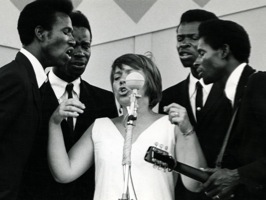
[1970]
Words and music by Bill Frederick, student in chemistry and draft resister at the time of the Vietnam War.
Album “F.T.A.! Songs et the GI Resistance”, Paredon Records
Sung by Barbara Dane with active-duty GIs.
Recorded at Fort Hood, Texas, Fort Benning, Georgia and Fort Bragg, North Carolina.
Edited by Irwin Silber.
“The writer of this song is a draft resister, an advanced student in chemistry, and one of the first songwriters to express a genuine sensitivity to the situation of the Vietnamese in the late '60s. Most of us have had so much conditioning the other way that when I sing this song people are very conflicted about how to respond. GIs will clap rather self-consciously, and one room full of atomic-energy scientists couldn't clap at all. I wish we had a better-recorded version of such a good song, but since all of us who worked on the album are activists, we were all... (continuer)
Words and music by Bill Frederick, student in chemistry and draft resister at the time of the Vietnam War.
Album “F.T.A.! Songs et the GI Resistance”, Paredon Records
Sung by Barbara Dane with active-duty GIs.
Recorded at Fort Hood, Texas, Fort Benning, Georgia and Fort Bragg, North Carolina.
Edited by Irwin Silber.
“The writer of this song is a draft resister, an advanced student in chemistry, and one of the first songwriters to express a genuine sensitivity to the situation of the Vietnamese in the late '60s. Most of us have had so much conditioning the other way that when I sing this song people are very conflicted about how to respond. GIs will clap rather self-consciously, and one room full of atomic-energy scientists couldn't clap at all. I wish we had a better-recorded version of such a good song, but since all of us who worked on the album are activists, we were all... (continuer)
There is a little haze in the morning air.
(continuer)
(continuer)
envoyé par Alessandro 16/3/2010 - 09:20
Parcours:
Guerre au Vietnam: vue des USA
Mosh

Non mi è mai piaciuto vedere le Twin Towers accasciarsi l'una sull'altra e pensare a quante persone c'erano dentro, ma se veramente la guerra in Iraq è stata combattuta per instaurare la democrazia in quel paese, allora 3 quarti del mondo sarebbero sotto una guerra, EMINEM 4 EVER!!!!!!!!!!!!!!!!!!!!!!!!!!!!!!
Loris 15/3/2010 - 19:42
Giovanna d'Arco

1994
Domenica e lunedì
Il testo di Paola Pallottino raccoglie molti degli elementi caratterizzanti la vicenda umana di Giovanna d'Arco, dalle visioni alle "voci", dalla scelta di armarsi alla consapevolezza di avere una missione da compiere. Una missione che costerà la vita alla contadina lorenese, al termine di un processo in cui i massimi teologi del tempo furono mobilitati per dichiararla eretica.
La fama di Giovanna vergine combattente, già alta durante la sua vita, fu tutt'altro che offuscata dalla fine riservatale, con la quale la supremazia inglese intendeva scoraggiare ogni dissenso: eroina popolare, appena l'influenza inglese sulla Francia iniziò a scemare fu riabilitata da un successivo processo (1456) e poi, al termine di una vicenda in cui il piano religioso si è intrecciato spesso a quello delle istanze e delle rivendicazioni nazionaliste (gli intenti antiinglesi con cui il... (continuer)
Domenica e lunedì
Il testo di Paola Pallottino raccoglie molti degli elementi caratterizzanti la vicenda umana di Giovanna d'Arco, dalle visioni alle "voci", dalla scelta di armarsi alla consapevolezza di avere una missione da compiere. Una missione che costerà la vita alla contadina lorenese, al termine di un processo in cui i massimi teologi del tempo furono mobilitati per dichiararla eretica.
La fama di Giovanna vergine combattente, già alta durante la sua vita, fu tutt'altro che offuscata dalla fine riservatale, con la quale la supremazia inglese intendeva scoraggiare ogni dissenso: eroina popolare, appena l'influenza inglese sulla Francia iniziò a scemare fu riabilitata da un successivo processo (1456) e poi, al termine di una vicenda in cui il piano religioso si è intrecciato spesso a quello delle istanze e delle rivendicazioni nazionaliste (gli intenti antiinglesi con cui il... (continuer)
L’Angelo Michele primo ti parlò;
(continuer)
(continuer)
envoyé par Io non sto con Oriana 15/3/2010 - 15:23
Buffalo Soldier

Un mito, una leggenda..
Con così poco che ha avuto..
Bob ti stimo :)
Con così poco che ha avuto..
Bob ti stimo :)
BettaStarr 15/3/2010 - 14:13
Join the GI Movement

[1970]
Words by Barbara Dane
Based on Aunt Molly Jackson' "I Am a Union Woman" (1931)
Album “F.T.A.! Songs et the GI Resistance”, Paredon Records
Sung by Barbara Dane with active-duty GIs.
Recorded at Fort Hood, Texas, Fort Benning, Georgia and Fort Bragg, North Carolina.
Edited by Irwin Silber.
“Back in the early '30s a great singing organizer in the bloody mine battles was Aunt Molly Jackson. She was the sister of two other great people's singers and fighters, Jim Garland and Sarah Ogan Gunning. The whole family was blacklisted from work because of their union activities, and they finally had to move away from Harlan County just to live. But their legacy of songs has stayed with us and keeps on being useful, wherever people are finding the strength and courage to fight for their rights. It seemed to me that this old chorus which used to be "Join the CIO" would help the guys who... (continuer)
Words by Barbara Dane
Based on Aunt Molly Jackson' "I Am a Union Woman" (1931)
Album “F.T.A.! Songs et the GI Resistance”, Paredon Records
Sung by Barbara Dane with active-duty GIs.
Recorded at Fort Hood, Texas, Fort Benning, Georgia and Fort Bragg, North Carolina.
Edited by Irwin Silber.
“Back in the early '30s a great singing organizer in the bloody mine battles was Aunt Molly Jackson. She was the sister of two other great people's singers and fighters, Jim Garland and Sarah Ogan Gunning. The whole family was blacklisted from work because of their union activities, and they finally had to move away from Harlan County just to live. But their legacy of songs has stayed with us and keeps on being useful, wherever people are finding the strength and courage to fight for their rights. It seemed to me that this old chorus which used to be "Join the CIO" would help the guys who... (continuer)
I am a GI rebel,
(continuer)
(continuer)
envoyé par Alessandro 15/3/2010 - 13:53
Hard Times in Colman's Mines
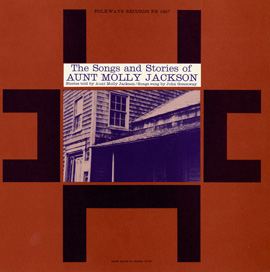
[1910]
Songs sung by John Greenway
Album “The Songs and Stories of Aunt Molly Jackson”, Folkways Records, 1961.
“This is a song I composed in 19 and l0 at a mining company in Bell County, Kentucky, when I was trying to get the miners to come out in strike for eight hours and better pay, and for decent homes to live in. I would sing this song and then I would make a long speech, and this way I organized that group of miners while they was in my reach. Colman was the name of the coal operator. He was working over 400 men in this way in 19 and l0. This song will tell you the awful condition the miners was in”
(dal libretto che accompagna il disco)
Songs sung by John Greenway
Album “The Songs and Stories of Aunt Molly Jackson”, Folkways Records, 1961.
“This is a song I composed in 19 and l0 at a mining company in Bell County, Kentucky, when I was trying to get the miners to come out in strike for eight hours and better pay, and for decent homes to live in. I would sing this song and then I would make a long speech, and this way I organized that group of miners while they was in my reach. Colman was the name of the coal operator. He was working over 400 men in this way in 19 and l0. This song will tell you the awful condition the miners was in”
(dal libretto che accompagna il disco)
Come out on strike, boys, it's all you can do;
(continuer)
(continuer)
envoyé par Alessandro 15/3/2010 - 13:12
The Death of Harry Simms
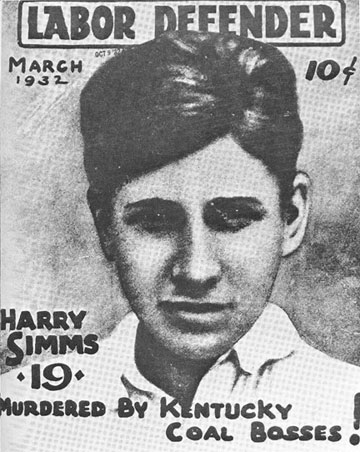
[1932]
Album “The Songs and Stories of Aunt Molly Jackson”, Folkways Records, 1961.
Lyrics and music by Aunt Molly Jackson and his brother Jim Garland.
Songs sung by John Greenway
Harry Simms, nato Hersh, era un giovane ebreo appartenente alla Young Communist League, attivista sindacale e buon amico del fratello di Aunt Molly Jackson, Jim Garland, anch’egli impegnato nel sindacato dei minatori del Kentucky.
Aveva solo 19 anni, Harry Simms, quando la United Mine Workers lo inviò nelle contee di Bell ed Harlan (chiamata ormai “Bloody Harlan”) dove più cruento era il confronto tra i minatori, in lotta per il miglioramento delle condizioni di lavoro, e le compagnie, che usavano polizia, squadracce e crumiri per intimidire i minatori e piegarne la determinazione. Al suo arrivo il giovane sindacalista fu ospitato proprio a casa di Jim Garland… L’11 febbraio 1932, di buon mattino, Harry si... (continuer)
Album “The Songs and Stories of Aunt Molly Jackson”, Folkways Records, 1961.
Lyrics and music by Aunt Molly Jackson and his brother Jim Garland.
Songs sung by John Greenway
Harry Simms, nato Hersh, era un giovane ebreo appartenente alla Young Communist League, attivista sindacale e buon amico del fratello di Aunt Molly Jackson, Jim Garland, anch’egli impegnato nel sindacato dei minatori del Kentucky.
Aveva solo 19 anni, Harry Simms, quando la United Mine Workers lo inviò nelle contee di Bell ed Harlan (chiamata ormai “Bloody Harlan”) dove più cruento era il confronto tra i minatori, in lotta per il miglioramento delle condizioni di lavoro, e le compagnie, che usavano polizia, squadracce e crumiri per intimidire i minatori e piegarne la determinazione. Al suo arrivo il giovane sindacalista fu ospitato proprio a casa di Jim Garland… L’11 febbraio 1932, di buon mattino, Harry si... (continuer)
Come and listen to my story,
(continuer)
(continuer)
envoyé par Alessandro 15/3/2010 - 12:57
Poor Miner’s Farewell

[1961]
Album “The Songs and Stories of Aunt Molly Jackson”, Folkways Records.
Songs sung by John Greenway
“Folksinger and Kentucky mountain midwife Aunt Molly Jackson caught the attention of Alan Lomax and Woody Guthrie with her stories and songs about the struggles of working-class life. Here presented by John Greenway, her work reflects genuine care for humanity and her furious fight against social injustice.” (Dall’introduzione al disco)
"I composed this song one day while I was walking along thinking of how soon a coal miner is forgotten after he is dead. The day I composed this song I never will forget; it was about three weeks after my own dear brother was killed. I found my brother‘s three oldest children out on the street. They told me they had been over to a store to try to get some food. They said 'We are out of money, and we have been all over town trying to get some groceries... (continuer)
Album “The Songs and Stories of Aunt Molly Jackson”, Folkways Records.
Songs sung by John Greenway
“Folksinger and Kentucky mountain midwife Aunt Molly Jackson caught the attention of Alan Lomax and Woody Guthrie with her stories and songs about the struggles of working-class life. Here presented by John Greenway, her work reflects genuine care for humanity and her furious fight against social injustice.” (Dall’introduzione al disco)
"I composed this song one day while I was walking along thinking of how soon a coal miner is forgotten after he is dead. The day I composed this song I never will forget; it was about three weeks after my own dear brother was killed. I found my brother‘s three oldest children out on the street. They told me they had been over to a store to try to get some food. They said 'We are out of money, and we have been all over town trying to get some groceries... (continuer)
They leave their dear wives and little ones, too,
(continuer)
(continuer)
envoyé par Alessandro 15/3/2010 - 11:39
A guerra é a guerra
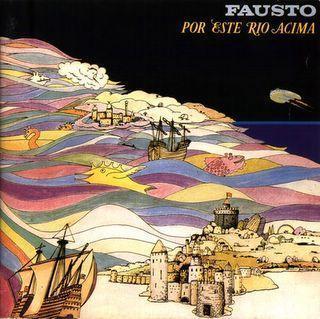
[1982]
Letras e música de Fausto Bordalo Gomes
Álbum: Por este rio acima (Disco 1)
"Por Este Rio Acima" é o sexto álbum de Fausto, editado em 1982. É o primeiro disco da trilogia inacabada "Lusitana Diáspora", que inclui ainda o álbum Crónicas da Terra Ardente (1994). Baseia-se nas viagens de Fernão Mendes Pinto (1512-1583) aventureiro e explorador português, relatadas na sua Peregrinação.
Diário da viagem, Fernão Mendes Pinto:
"De Diu embarquei para o estreito de Meca, daqui fomos a Maçuá e daí, por terra, ao Reino do Preste João. Passei ao Reino dos Batas e de fugida pelo Reino de Quedá como adiante darei parte. Em Patane conheci António de Faria, capitão a quem servi na venda da mercadoria. Fomos atacados e roubados pelo perro do Coja Acém, temido pirata depois que Heitor da Silveira lhe matara seu pai e dois irmãos. Por isso, Coja Acém havia prometido a Mafamede matar todos da geração... (continuer)
Letras e música de Fausto Bordalo Gomes
Álbum: Por este rio acima (Disco 1)
"Por Este Rio Acima" é o sexto álbum de Fausto, editado em 1982. É o primeiro disco da trilogia inacabada "Lusitana Diáspora", que inclui ainda o álbum Crónicas da Terra Ardente (1994). Baseia-se nas viagens de Fernão Mendes Pinto (1512-1583) aventureiro e explorador português, relatadas na sua Peregrinação.
Diário da viagem, Fernão Mendes Pinto:
"De Diu embarquei para o estreito de Meca, daqui fomos a Maçuá e daí, por terra, ao Reino do Preste João. Passei ao Reino dos Batas e de fugida pelo Reino de Quedá como adiante darei parte. Em Patane conheci António de Faria, capitão a quem servi na venda da mercadoria. Fomos atacados e roubados pelo perro do Coja Acém, temido pirata depois que Heitor da Silveira lhe matara seu pai e dois irmãos. Por isso, Coja Acém havia prometido a Mafamede matar todos da geração... (continuer)
Salto no escuro
(continuer)
(continuer)
envoyé par giorgio 14/3/2010 - 21:54
Universal Soldier

Album / Albumi: Canzoni come costume, Canzoni come civiltà
Il soldato universale
(continuer)
(continuer)
envoyé par giorgio 14/3/2010 - 19:42
Stop the War

SUGAR BLUE (interview) on Stop he War:
"I think the only thing we achieve... through war.. is death!
War destroys hope. War destroys everything that we value, everything that we built. And it takes that thing that none of us can give - life!
And there has got to be another way. It's insane to continue doing the
same things and expecting a better result!"
“Stop the War,” a funky blues that deftly mixes snippets of famous speeches and news reports with its plea... HYPERBOLIUM
"...his vocal and songwriting styles recall the soul and funk protest anthems of War or Sly & the Family Stone. He writes from experience, having served in Vietnam between 1970 and 1973." - CHICAGO MAGAZINE
"I think the only thing we achieve... through war.. is death!
War destroys hope. War destroys everything that we value, everything that we built. And it takes that thing that none of us can give - life!
And there has got to be another way. It's insane to continue doing the
same things and expecting a better result!"
“Stop the War,” a funky blues that deftly mixes snippets of famous speeches and news reports with its plea... HYPERBOLIUM
"...his vocal and songwriting styles recall the soul and funk protest anthems of War or Sly & the Family Stone. He writes from experience, having served in Vietnam between 1970 and 1973." - CHICAGO MAGAZINE
They call it war I call it murder , murder in the first degree
(continuer)
(continuer)
envoyé par sailon8 14/3/2010 - 18:14
Todo cambia

che canzone fantastica.... complimenti per la traduzione!
fa sognare...
fa sognare...
14/3/2010 - 11:18
Diari d'una guerra
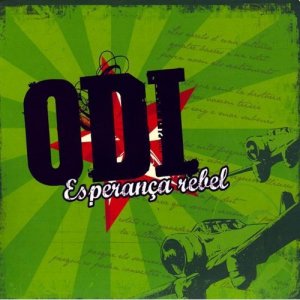
[2008]
Album: Esperança Rebel
Album: Esperança Rebel
Mirant al sol i amb la mà dreta ens van prohibir
(continuer)
(continuer)
envoyé par giorgio 14/3/2010 - 09:34
Franz è il mio nome

Version française – MON NOM EST FRANZ - Marco Valdo M.I. – 2010
Chanson italienne – Franz è il mio nome – Edoardo Bennato - 1976
Chanson italienne – Franz è il mio nome – Edoardo Bennato - 1976
MON NOM EST FRANZ
(continuer)
(continuer)
envoyé par Marco Valdo M.I. 14/3/2010 - 09:32
L'estaca
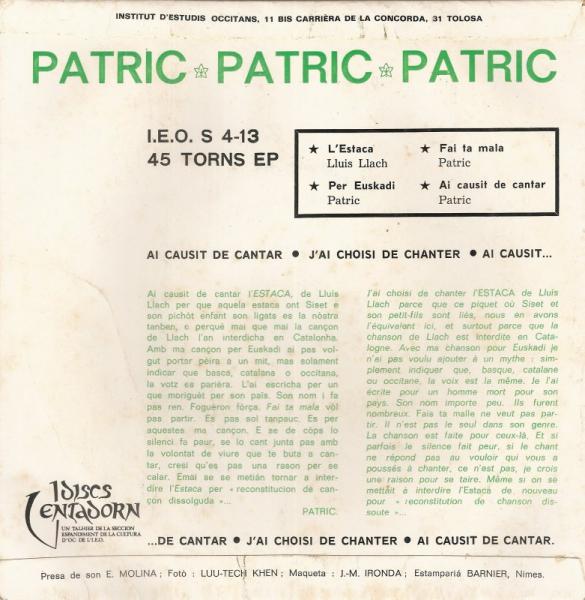
OCCITANO 3 [ Patric, 1972 ]
OCCITAN 3 [ Patric, 1972 ]
Pubblicata in vinile nel 1972 (Ventadorn EP IEOS 4.13) in un EP contenente L'estaca, Per Euzkadi, Fai ta mala e Ai causit de cantar. In ordine di tempo, si tratta della prima versione in assoluto de L'estaca in una lingua diversa dal catalano. [RV]
Da/d'après Open Folk Forum.
Patric est originaire de Mèze, dans l'Hérault, c'est donc l'orthographe et la prononciation de l'occitan tel qu'il est parlé dans la région de Montpellier qui est utilisé ici. Il est le créateur de la célèbre chanson "Occitània" et il a repris (entre autres) le "Se Canta", hymne occitan et la "Copa Santa" de Frédéric Mistral, mais en occitan, pas en provençal. (Le provençal est une langue romane de la famille des langues d'oc...)
“El primer cop que vaig sentir ‘L’estaca’ de Lluís Llach va ser en un poblet a prop de Barcelona, a l’època en què estava prohibida.... (continuer)
OCCITAN 3 [ Patric, 1972 ]
Pubblicata in vinile nel 1972 (Ventadorn EP IEOS 4.13) in un EP contenente L'estaca, Per Euzkadi, Fai ta mala e Ai causit de cantar. In ordine di tempo, si tratta della prima versione in assoluto de L'estaca in una lingua diversa dal catalano. [RV]
Da/d'après Open Folk Forum.
Patric est originaire de Mèze, dans l'Hérault, c'est donc l'orthographe et la prononciation de l'occitan tel qu'il est parlé dans la région de Montpellier qui est utilisé ici. Il est le créateur de la célèbre chanson "Occitània" et il a repris (entre autres) le "Se Canta", hymne occitan et la "Copa Santa" de Frédéric Mistral, mais en occitan, pas en provençal. (Le provençal est une langue romane de la famille des langues d'oc...)
“El primer cop que vaig sentir ‘L’estaca’ de Lluís Llach va ser en un poblet a prop de Barcelona, a l’època en què estava prohibida.... (continuer)
L'ESTACA
(continuer)
(continuer)
envoyé par JF Blanc 14/3/2010 - 00:37
×
![]()

